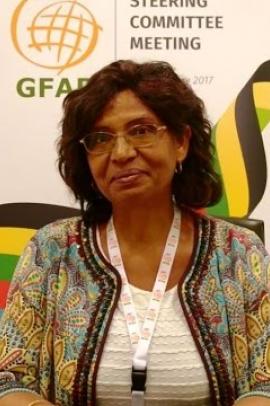Overview
The University of Nairobi is a strategic partner of Food Security Center (FSC) in the University of Hohenheim and is a beneficiary of FSC grants consisting of funds received through DAAD from the Federal Ministry of Economic Cooperation and Development (BMZ). The Food Security Center (FSC) in the University of Hohenheim, Germany is part of the DAAD program Higher Education in Development Cooperation (EXCEED).
Currently, five EXCEED - Excellence Centers for Exchange and Development at German universities are funded by the German Federal Ministry for Economic Cooperation and Development (BMZ). FSC is establishing international networks in the field of food security for the realization of the Sustainable Development Goals (SDGs).
The FSC’s mission is to provide innovative and effective scientific findings to reduce hunger and achieve food security, contributing towards the major goals of the United Nations Sustainable Development Goals (UN SDGs), in particular to zero hunger (SDG 2) and no poverty (SDG 1).
FSC promotes and ensures an excellent education and training of young international scientists.
Within its international networks in the field of food security, FSC utilizes a multi- and transdisciplinary approach through teaching, conducting research, and providing policy advice in cooperation with national and international development organizations and partner institutions.
The target groups of FSC include people affected by hunger and/ or malnutrition, people at risk of food insecurity, decision-makers in development-oriented organizations involved in the formation and implementation of food and agricultural related development policies, as well as scientists and graduate students at partner institutions.
FSC’s mission is internationally transferred by several events such as the annual World Food Day Colloquium, the biennial International Congress Hidden Hunger, Policy Round Tables and Regional Workshops specifically tailored for FSC’s target groups.
Sponser
Food Security Center (FSC)
Principal Investigator
Abstract
The University of Nairobi is a strategic partner of Food Security Center (FSC) in the University of Hohenheim and is a beneficiary of FSC grants consisting of funds received through DAAD from the Federal Ministry of Economic Cooperation and Development (BMZ). The Food Security Center (FSC) in the University of Hohenheim, Germany is part of the DAAD program Higher Education in Development Cooperation (EXCEED).
Currently, five EXCEED - Excellence Centers for Exchange and Development at German universities are funded by the German Federal Ministry for Economic Cooperation and Development (BMZ). FSC is establishing international networks in the field of food security for the realization of the Sustainable Development Goals (SDGs).
The FSC’s mission is to provide innovative and effective scientific findings to reduce hunger and achieve food security, contributing towards the major goals of the United Nations Sustainable Development Goals (UN SDGs), in particular to zero hunger (SDG 2) and no poverty (SDG 1).
FSC promotes and ensures an excellent education and training of young international scientists.
Within its international networks in the field of food security, FSC utilizes a multi- and transdisciplinary approach through teaching, conducting research, and providing policy advice in cooperation with national and international development organizations and partner institutions.
The target groups of FSC include people affected by hunger and/ or malnutrition, people at risk of food insecurity, decision-makers in development-oriented organizations involved in the formation and implementation of food and agricultural related development policies, as well as scientists and graduate students at partner institutions.
FSC’s mission is internationally transferred by several events such as the annual World Food Day Colloquium, the biennial International Congress Hidden Hunger, Policy Round Tables and Regional Workshops specifically tailored for FSC’s target groups.












